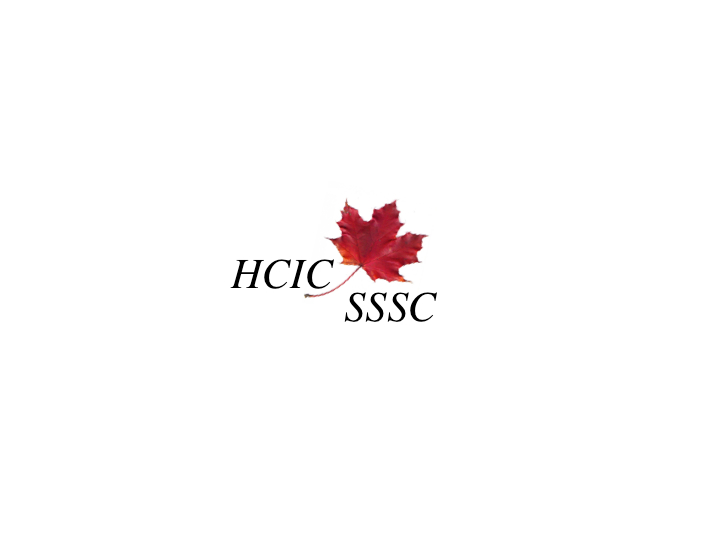OTTAWA. ONTARIO – October 25, 2016 – Results of the 12th edition of the Health Care in Canada (HCIC) survey were announced on September 22nd in Ottawa as part of the HCIC members meeting of national, multi-institutional healthcare stakeholders.
Since 1998, the HCIC survey has collected data on how the Canadian public and health professionals perceive the state of our health care system. This has allowed for the trending over the years of major strengths and concerns, as well as identifying what doctors, nurses, pharmacists, allied health professionals and administrators, in addition to patients and their family caregivers support as major opportunities for improvement in quality, accessibility and affordability.
The 2016 survey looked at trends in quality and access, personal values, social determinants of health, personal health status, chronic disease prevalence and management, as well as key components of patient-centred care and end of life options.
Among the highlights of this year’s survey:
- Canadians believe wait times for health care services are getting worse
- More than half of nurses believe Canadians are not receiving quality health care
- The public relies on the Internet for health care information more than they do on their primary care provider
- More than 50% of Canadians aren’t taking their medicine as prescribed and cost is not the reason why
- The top priority for enhancing patient-centred care among the public and most health care professionals is ‘care that is readily and timely accessed’
- The people who may assist with death, worry about legal or regulatory reprisal, even if assisting in death is legal
According to Dr. Terrence Montague, Principal of CareNet Health Management and consultant to the HCIC survey initiative, the raw data and survey results provide relevant information that health care policy makers can use in informed decision-making, legislators can use to guide our legal and regulatory health-care framework and researchers can use as a starting point for further studies.
“The survey provides incredibly rich data and insights on what Canadians think about their health and their health care system, as well as the diverging and converging opinions of patients, physicians, nurses, pharmacists and others on specific issues,” Montague says. “A second important feature is that the survey can track how opinions and beliefs continue to change over time.”

Dr. Sara Ahmed, a lead researcher at the Constance-Lethbridge Rehabilitation Centre, Centre for Interdisciplinary Research in Rehabilitation, and Associate Professor in the School of Physical and Occupational Therapy at McGill University’s Faculty of Medicine, has collaborated with the HCIC survey for nine years. “The HCIC survey provides an invaluable source of data to evaluate and contrast perspectives on emerging healthcare issues from a representative Canadian sample of the public, healthcare professionals, and administrators,” notes Dr. Ahmed.
Under Dr. Ahmed’s direction and through HCIC funding, researchers at McGill maintain a roster regarding the use of survey findings, provide oversight for statistical data analysis of HCIC results across the country and support knowledge translation activities. “In addition to allowing us to examine trends on key issues such as access to care and the elements most relevant to patient-centred care, it also enables us to evaluate how opinions on these areas vary across sociodemographic and health-related groups”, she adds.
Information about the HCIC membership and survey results can be found at http://www.mcgill.ca/hcic-sssc/ .
About the Health Care in Canada Survey
The Health Care in Canada Survey has been helping stakeholders understand what Canadians think about their own health and the quality of their health care system since 1998.
The results of the 2016 HCIC Survey were derived from an online survey questionnaire conducted in May and June 2016 of a nationally representative sample of Canadian adult public, doctors, nurses, pharmacists, administrators, allied health professionals including nutritionists/dieticians, occupational therapists, physical therapists, psychologists and social workers. Some 1500 members of the public completed the survey as well as a sample of 102 doctors, 102 nurses, 100 pharmacists, 100 administrators and 100 allied health professionals. The results, with an estimated margin of error of ± 2.5% among public and ± 9.8% for each professional group, identify a number of trends and important findings.
The Health Care in Canada Survey has been conducted by Pollara Strategic Insights (www.pollara.com) since inception, supported by the HCIC survey partners, with principal funding from Merck Canada Inc. Current members include the Canadian Cancer Society; Canadian Foundation for Healthcare Improvement; Canadian Home Care Association; Canadian Hospice Palliative Care Association; Canadian Medical Association; Canadian Nurses Association; Canadian Pharmacists Association, Constance-Lethbridge Rehabilitation Centre, Centre for Interdisciplinary Research in Rehabilitation; McGill University; Health Charities Coalition of Canada; HealthCareCAN; Institute of Health Economics; Studer Group Canada; Merck Canada Inc.; Strive Health Management; and, CareNet Health Management Consulting.
Further information about the Health Care in Canada Survey please visit:
-30-
For further information and to arrange media interviews contact
John Aylen
John Aylen Communications
514 622 7110
About Pollara Strategic Insights
Founded in 1980, Pollara Strategic Insights is one of Canada’s premier full-service research firms – a collaborative team of senior research veterans who are passionate about conducting research through hands-on creative and customized solutions. Taking full advantage of their comprehensive toolbox of industry-leading quantitative and qualitative methodologies and analytical techniques, Pollara provides research-based strategic advice to a wide array of clients across all sectors on a local, national and global scale. For more information, please visit www.pollara.com.
October 27, 2016

